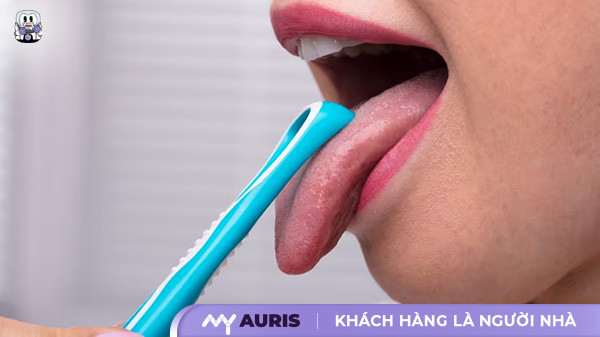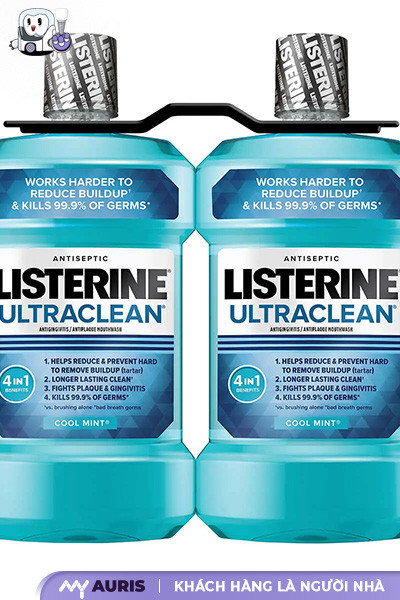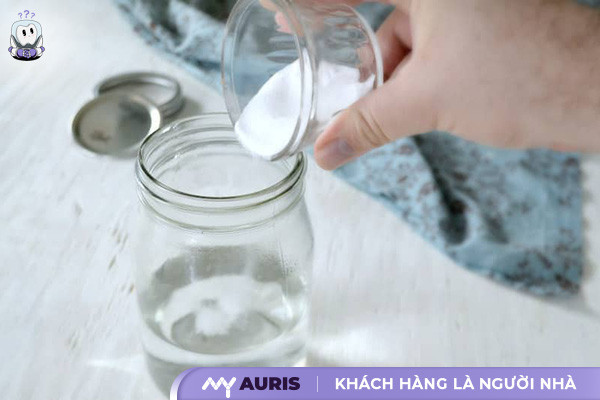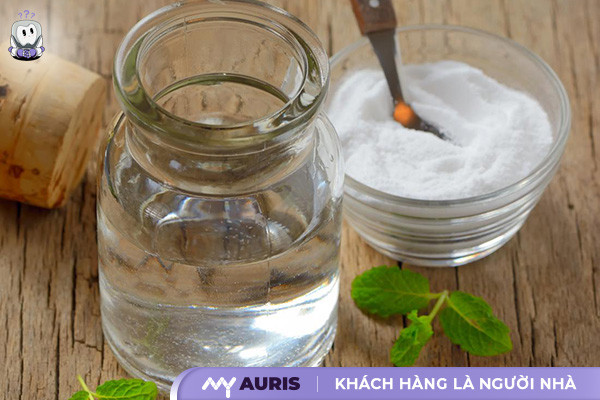Do you often feel self-conscious about bad breath every morning when you wake up? Bad breath after a night’s sleep not only causes discomfort for yourself but also affects your confidence in communication, limiting personal and professional relationships. So, is there a way to quickly improve breath odor overnight? In this article, a dental and maxillofacial specialist will share common causes and suggest effective, safe solutions to help you eliminate bad breath right from the next morning. Let’s find out how to restore fresh breath and regain your inherent confidence!
Pathological Bad Breath Cannot Be Cured Overnight
Pathological bad breath is a condition that cannot be resolved after just one night’s sleep. Many people mistakenly believe that regular oral hygiene is sufficient, but in reality, bad breath originates from many deep-seated causes that simple measures cannot eliminate completely. As long as the root cause of bad breath persists, the odor will return as soon as temporary measures wear off.
- Serious oral diseases. Issues like cavities causing bad breath, gingivitis causing bad breath, or periodontitis causing bad breath create a favorable environment for bacteria to multiply, leading to persistent bad odor. Without treating the root cause of bad breath, all deodorizing efforts are merely temporary.
- Long-term plaque accumulation causing bad breath. Plaque that builds up over time not only affects aesthetics but also serves as a breeding ground for bacteria that decompose food and cause bad breath. Daily brushing does not remove plaque, so regular dental scaling at the dentist’s office is necessary for effective odor control.
- Chronic dry mouth causing bad breath. Saliva washes away bacteria and naturally cleanses the oral cavity. But with chronic dry mouth, due to medication side effects, mouth breathing habits, or salivary gland diseases, bacteria can easily multiply, leading to persistent bad breath.
- Digestive diseases causing bad breath. Many people suffer from gastroesophageal reflux disease (GERD) causing bad breath, as stomach acid refluxes into the esophagus and mouth, damaging tooth enamel and creating the characteristic GERD odor. Furthermore, gastritis causing bad breath, stomach ulcers causing bad breath, and digestive disorders causing bad breath all lead to slow food digestion and bad breath, producing odors from within the body that escape through the breath.
- Chronic sinusitis and tonsillitis causing bad breath. Mucus in the nasal cavity and throat is an ideal environment for bacterial growth. When suffering from sinusitis causing bad breath or chronic tonsillitis causing bad breath, bacteria accumulate in the mucus, leading to foul breath, even if you maintain thorough oral hygiene.
- Liver and kidney diseases causing bad breath. The liver filters toxins in the body, and the kidneys filter toxins in the body. When these organs are weakened, toxins accumulate in the blood, causing bad breath and creating characteristic liver and kidney disease odors, such as the ammonia smell of kidney failure.
To permanently eliminate bad breath, you need to accurately identify its cause and apply appropriate treatment. In many cases, specialized dental treatment combined with a gastroenterologist, ENT specialist, or liver/kidney specialist is required for thorough resolution.

Causes of Bad Breath Not Everyone Knows
Bad breath not only causes a loss of confidence in communication but can also be a warning sign of various oral health issues. From a professional perspective, the causes of bad breath stem from many different factors, including:
Strong-smelling foods (garlic, onions, spices): Some strong-smelling foods like garlic, onions, and various spices, when digested, enter the bloodstream, then travel to the lungs and are expelled through breathing. This causes unpleasant breath, especially noticeable if eaten late at night or before bed. Additionally, food particles remaining in the mouth create conditions for bacteria to grow, leading to bad breath.
Dry mouth – reduced saliva production: Saliva plays an important role in oral hygiene, helping to kill bacteria and wash away food residue. When experiencing dry mouth, especially during sleep, the amount of saliva decreases, leading to unpleasant breath upon waking, which is a common occurrence.
Neglecting oral hygiene: Ignoring the removal of food debris and neglecting oral care allows bacteria to accumulate, creating an environment for harmful bacteria to proliferate and cause periodontal disease – one of the leading causes of persistent bad breath.
Smoking: Bad breath in smokers is a well-known issue. Besides creating an unpleasant odor, smoking also increases the risk of periodontal disease, gum damage, and reduces the mouth’s healing ability.
Side effects of medication: Some medications can cause dry mouth or release foul-smelling chemicals into the body after being metabolized, thereby directly affecting breath.
Quick Fixes for Bad Breath in Emergency Situations
Bad breath after waking up is a common problem that significantly impacts self-confidence in daily communication. Especially in urgent situations like before a meeting, a date, or meeting partners, you need an immediate solution. With practical experience in dentistry, My Auris shares overnight bad breath remedies such as: drinking plenty of water, brushing teeth – tongue scraping, chewing gum, mouthwash, breath spray, using home ingredients, using lemon, baking soda, and salt water – all of which have been proven safe and effective. These tips not only help temporarily improve breath odor but also support maintaining a clean and healthy oral cavity if applied regularly.

Drink plenty of water
When your mouth is dry, bacteria have an opportunity to grow and create odor. Drinking plenty of water immediately helps cleanse the oral cavity and stimulate saliva production. You can add a slice of lemon – the mild acid in lemon has antibacterial properties and creates a pleasant fragrance.

Brush and Scrape Your Tongue
Food debris adhering to teeth and the tongue is where bacteria thrive. Brush your teeth immediately, and combine it with tongue scraping using a tongue brush or a specialized tongue scraper, as bacteria accumulate most on the tongue.
Chew Sugar-Free Gum
Chewing sugar-free gum helps stimulate saliva production, washing away bacteria, plaque, and food debris – factors that cause bad breath. Mint and cinnamon flavors in gum instantly neutralize odors, provide fresh breath, and balance pH levels, limiting bacterial growth. Chewing gum also temporarily cleanses the oral cavity, maintains moisture, and prevents dry mouth.

Use Mouthwash
Using mouthwash is a quick and convenient solution to neutralize bad breath and regain confidence in communication. If used correctly, mouthwash not only masks bad odors but also helps clean the oral cavity and limit bacterial growth.
Common antibacterial mouthwash ingredients include: chlorhexidine, cetylpyridinium chloride, or natural extracts such as green tea, peppermint oil, and tea tree oil, which help kill odor-causing bacteria, prevent food decomposition, and the production of sulfur compounds.
Choose a product that helps clean lingering plaque, eliminate odor-causing agents, and balance the pH in the mouth – thereby creating an unfavorable environment for bacteria. For those with dry mouth or sensitive teeth, choose an alcohol-free type to avoid irritating the oral mucosa.
Use Breath Spray
Using breath spray containing deodorizing ingredients like menthol, peppermint, chlorhexidine, cetylpyridinium chloride, etc., has an instant cooling effect on the mouth and reduces oral bacteria.
Some products also contain green tea extract, natural peppermint, zinc (Zn), and clove essential oil to inhibit bacterial growth. The mechanism of breath spray is to temporarily eliminate odors, combining a strong fragrance with mild antibacterial agents.
How to use breath spray correctly:
- Shake the bottle well before use.
- Spray directly into the mouth (1–2 times), aiming at the oral cavity or inner cheeks to spread the scent evenly.
- Do not overuse it too many times a day to avoid irritating the mouth and causing dry mouth.
Use Home Remedies
Chew fresh ginger
Peel fresh ginger, wash thoroughly, take about 1–2g.
Suck and chew gently for 30 seconds – 1 minute.
You can swallow or spit it out, then drink a little warm water to enhance the deodorizing effect.
Make ginger tea
Slice ginger thinly (3–5 slices), add to 200ml boiling water.
Steep for 5–10 minutes, drink when the water is still warm.
You can add a little honey or lemon to enhance the flavor and deodorizing effect.
Oil pulling with coconut oil
Use 1 tablespoon of virgin coconut oil (about 10ml).
Swish and gargle thoroughly in your mouth for 10–15 minutes.
Spit it out, rinse with warm water to remove excess oil.
Perform every morning to clean the oral cavity and reduce bad odor.
Rinse with tea tree oil
Mix 2–3 drops of tea tree oil into 1 cup of warm water.
Rinse for 30 seconds – 1 minute, then spit it out and do not swallow.
Maintain twice a day for effective bad breath reduction.

Use Lemon to Treat Bad Breath
Lemon effectively treats bad breath because it contains ascorbic acid – an active ingredient capable of powerfully killing odor-causing bacteria in the oral cavity. Not only that, lemon also helps the oral cavity secrete more saliva, thereby stimulating oral cleansing, leading to long-lasting fresh breath.
You can treat bad breath with lemon by rinsing your mouth: squeeze lemon juice, store it cold, and use it to rinse your mouth every morning. This method will significantly eliminate bad breath after just a few uses.
Additionally, you can combine lemon with salt, lemon with cinnamon, or lemon with toothpaste to enhance cleaning and antibacterial effects. However, you should not use too much lemon as it can harm your intestines and affect tooth enamel.

Treat Bad Breath Overnight with Baking Soda
Baking soda effectively treats bad breath thanks to its ability to balance acid levels in the mouth and eliminate oral bacteria – the main cause of unpleasant odor. At the same time, baking soda whitens teeth, exfoliates, and can even treat scars if used correctly.
You can dissolve baking soda to rinse your mouth every morning or mix baking soda with toothpaste for regular brushing to improve both the color and smell of your oral cavity.

Rinse with Salt Water
Salt water is a simple yet highly recommended option by experts for oral hygiene. Salt has strong antibacterial properties, helping to kill odor-causing bacteria, clean the tongue, and remove plaque from teeth.
You can mix dilute salt with mouthwash or use physiological saline to rinse your mouth daily to prevent bacterial growth. In particular, the fluoride component in salt helps eliminate harmful bacteria, prevent tooth decay, get rid of bad odors, and also effectively treat sinusitis, rhinitis, coughs, and sore throats.
Treating Underlying Conditions Causing Chronic Bad Breath: A Root Cause Solution
Persistent bad breath is not just a communication nightmare but also a warning sign of many underlying health conditions. Addressing the root cause of bad breath will provide long-term effectiveness, rather than just temporary relief. Below are common groups of diseases that require attention:
Digestive Issues Causing Bad Breath
- Gastroesophageal Reflux Disease (GERD): When stomach acid refluxes into the esophagus, it damages the esophageal lining and produces a characteristic GERD odor. In this case, treating GERD with acid-suppressing medication combined with adjusting your GERD diet, such as avoiding spicy, sour, and oily foods, will help improve breath odor.
- Digestive disorders causing bad breath: When food digests slowly, foul-smelling gases produced in the intestines directly affect breath. You should supplement with probiotics for digestive disorders, eat more green vegetables for digestive disorders, and limit hard-to-digest foods for digestive disorders to balance your digestive system.
Ear, Nose, and Throat Conditions Causing Bad Breath
- Chronic sinusitis causing bad breath and chronic tonsillitis causing bad breath are often accompanied by stagnant mucus causing bad breath, creating an ideal environment for bacteria to grow and cause bad breath. Treating sinusitis with antibiotics, rinsing the nose with saline for sinusitis, or even sinusitis surgery if necessary will yield clear results. For tonsillitis, you may need to treat tonsillitis with antibiotics, gargle with saline for tonsillitis, or undergo tonsillitis surgery in severe chronic cases.
Systemic Diseases Causing Bad Breath
- Liver disease causing bad breath and kidney disease causing bad breath are due to poorly functioning liver causing bad breath and poorly functioning kidneys causing bad breath, leading to toxin accumulation causing bad breath, and producing characteristic liver and kidney disease breath odors. Regular health check-ups for liver and kidney disease and treating underlying conditions causing bad breath are essential.
- Diabetes causing bad breath often results in a diabetic acetone odor (similar to fermented fruit). In this case, controlling blood sugar to reduce diabetic bad breath is the best way to improve this condition.
Dental Conditions Causing Bad Breath
- Plaque causing bad breath due to its accumulation is a common cause. You should have professional dental scaling every 3–6 months at a reputable dental clinic.
- Diseases like cavities causing bad breath, gingivitis causing bad breath, and periodontitis causing bad breath are all related to bacteria decomposing tooth tissue or food, causing odor. Depending on the condition, the dentist will prescribe cavity treatment with fillings, gingivitis treatment with scaling, or periodontitis treatment with periodontal surgery.
Morning bad breath can stem from overnight bad breath causes such as dry mouth during sleep, bacterial buildup, or inadequate oral hygiene. If bad breath persists, you should visit a dentist for effective bad breath treatment to identify the exact cause and receive timely treatment.





